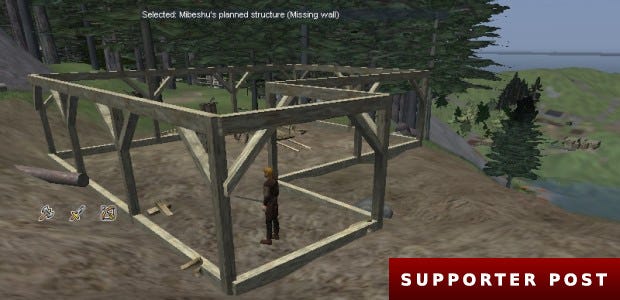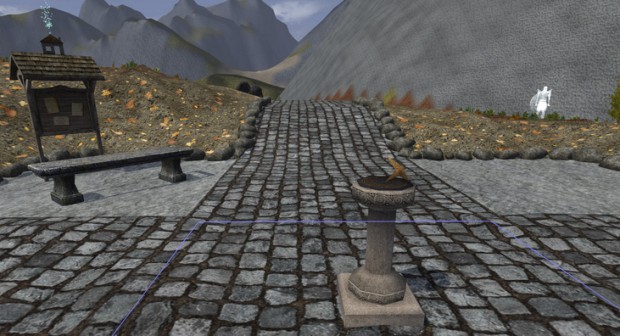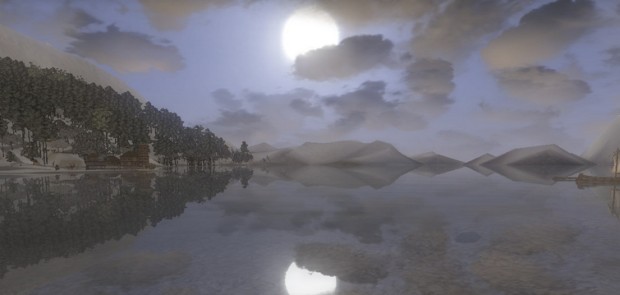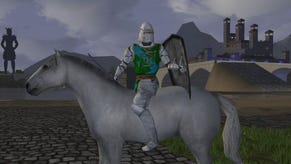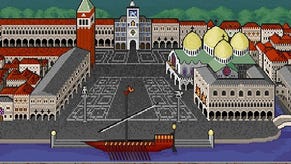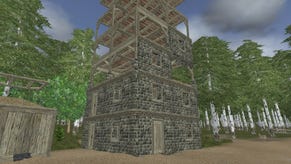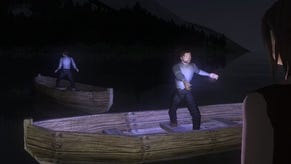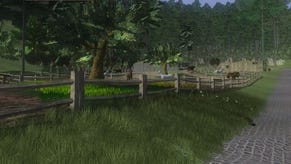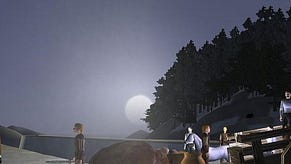It Takes A Village: Wurm Online And The Value Of Tedium
Virtual Barn Raising
Wurm Online is a tedious game. Even now, when open world survival, player-driven multiplayer, and fantasy-world frontiers are in vogue, the game is off-puttingly obtuse. For starters, every action is performed via context-sensitive right-click menus. Want to chop down a tree? Right-click and click 'chop' on it twenty times. Want to do anything with that felled trunk? Then right-click on it twenty times more to turn it into logs, then do it again to turn logs into planks.
Then do it again and again, because it takes twenty planks to make a single segment of a building wall.
Wurm Online is a tedious game, but I also once loved it like no other.
My relationship with the game began due to another RPS alum. Quinns wrote a feature about Wurm for PC Gamer (later re-published on these pages), which paired explanation of its systems with deadly PvP assaults, thievery, and other moments of human-created drama. This prompted a small PC Gamer community to spring up on the game's then-free server.
By the time I decided to join them, they were already established, with a settlement not far from the new player spawn. Everything in Wurm Online is player-built, from the houses to the stone paths to the signposts that tell you where to go. To reach PC Gamer's village - secured by a purchased deed for the land - I had to follow a guide in a forum post. Walk down a hill near the spawn; turn right and walk straight till you reach a lake; follow the left-edge of that lake till you spot a series of low walls built in twenty-feet increments up a mountainside, then walk up that mountain.
The low walls, I would discover, were there because Wurm Online has a punishing fatigue system. As a new player with low stamina, you couldn't climb to the top of the mountain without needing to rest. The walls gave you something to stop and lean against.
As I leant against one of those walls to catch my breath, I could see a colossal stone statue at the top of the hill. I'd later be told that it was built by players, in honour of Zephyr. Zephyr lived on an island he built himself in the center of the lake I'd just walked alongside, an island upon which he kept tame bears. Zephyr was the only player with tame bears on the server, as they had been removed once the developers decided they were too strong for the level-capped free players. Zephyr was allowed to keep his.
I imagined Zephyr much like his statue; a colossal figure who built islands, wrestled bears and inspired people to build statues to him. No normal player would ever reach these accomplishments. For the rest of us, it was a hard, tiring life. If you were lucky, maybe you'd build a little shack, be able to farm enough to stay alive, and take up a nice, quiet skill like puppeteering.
The PC Gamer settlement was consequently more modest than the statue it sat under. There were a few houses, some cobble paths between them, and a soup kitchen from which everyone was allowed to take food. The town's one grand project was a mine they were digging underneath the town which would create a one grid-square wide tunnel from the top of the hill down towards the spawn point, making it easier for new players to find the village. It had taken months when I arrived, and stretched barely a quarter of the way towards its eventual destination.
Yet the tedium had its benefits. The difficulty of accomplishing anything meaningful within Wurm Online bonded people together under a sense of shared suffering. We were all in this together because we had to be; it was either too hard, or too lonely, to do anything by yourself.
After arriving, I quickly began to help the village where I could, by cutting down trees, digging in the mine, carting around materials, and trying in my feeble, low-levelled way to pay back the community for the generosity of the soup kitchen, without which I would likely have starved to death many times over.
I could never do enough to match the generosity others showed me, though. When I stumbled upon a nearby camp of NPC enemies - some goblins or orcs or imps, I don't remember - all I could do was run and hide and watch as the elders came to my rescue. When I decided to build a modest shack with a mountain view, half a dozen people came to raise that 3x6 barn with me. The result was that I bonded with strangers on the internet over long hours of manual labor: right-click, chop; right-click, hammer; right-click, dig. Hours became days, days became weeks, and soon I had been logging into Wurn Online every night for months.
When the dank tunnel was finally complete, the village's ambitions grew. This wasn't like Minecraft though, where players rushed off to start building as soon as they felt the cold air of inspiration. Every action was hard work, which meant that efficiency and planning and organisation were necessary to save time, and which meant that everyone who pitched in had a say in the future direction of the village.
When it was obvious that our expansion would require greater reserves of wood, people thought ahead and started a forestry commission charged with foraging and re-planting two trees for every one that was cut down.
On a forum and blog I created for the village, democracy took hold. A village member called KGB mapped the village out using Google Sketchup, both to help new visitors find their way around and so residents could vote on how and where we should expand our borders. When we outgrew the space available to us atop that hillside, scouts were sent out around the world and reported back with screenshots of possible new locations. When it finally came time to move, the whole village worked together to build carts, train animals, and drag the most important equipment across the world.
Eventually I drifted away from the game, owing to a busy work schedule and the loss of connection to that original home. In the years since, I've experienced the intoxicating thrill of putting a mark upon a virtual world a hundred times, but Wurm Online remains the only time I got to experience that feeling alongside the subtler joys of cooperation, and of community.
Wurm Online is a tedious game, and nothing brings people together like tedium.
This used to be part of the in-game Wurm soundtrack.
As an experiment, I've recorded an audio version of this article which you can listen to below. The background audio track is Long Summer by Tom E. Morrison, from the more recent Wurm Online soundtrack. This is the first time I've done anything like this, so please be kind - though any constructive feedback is appreciated.
